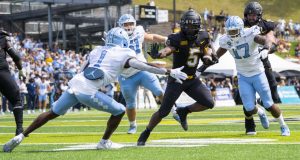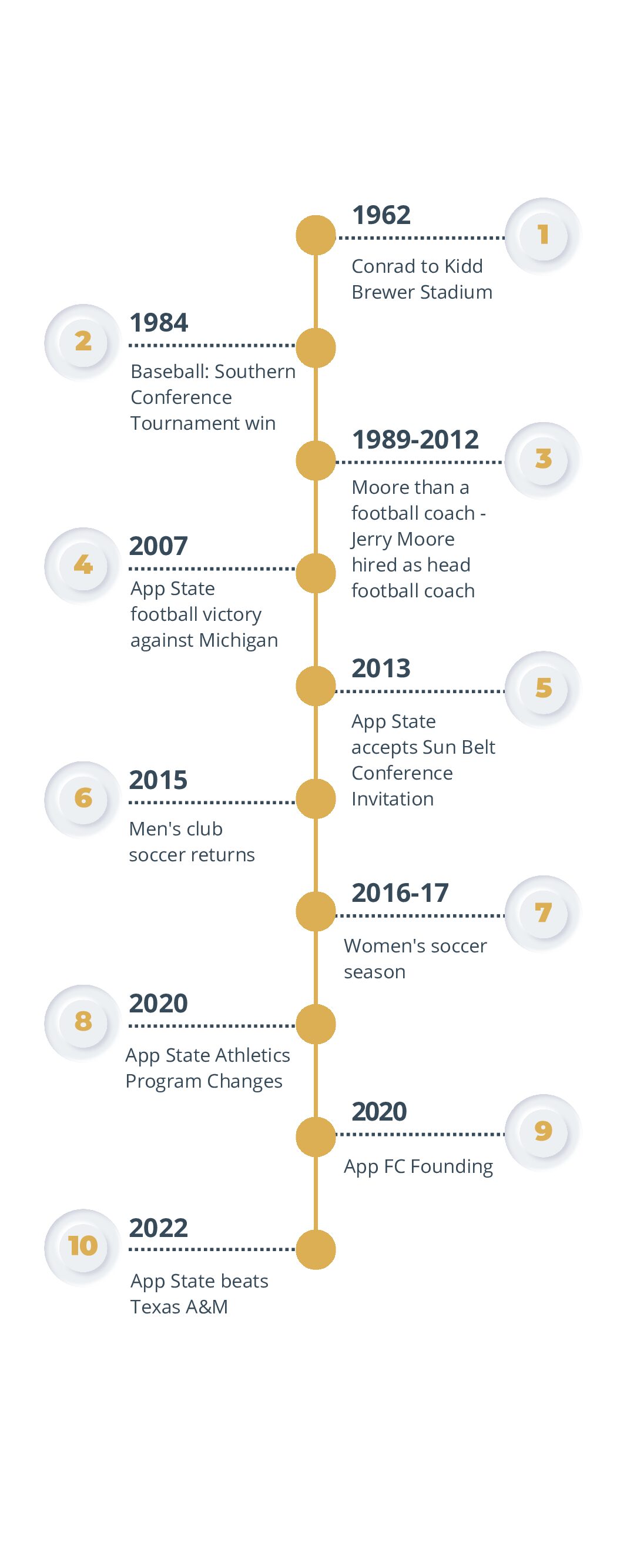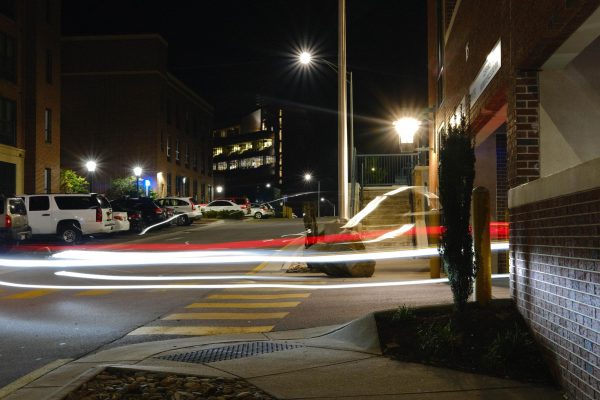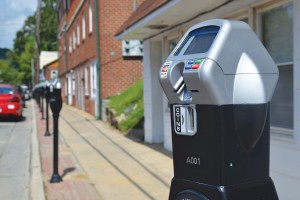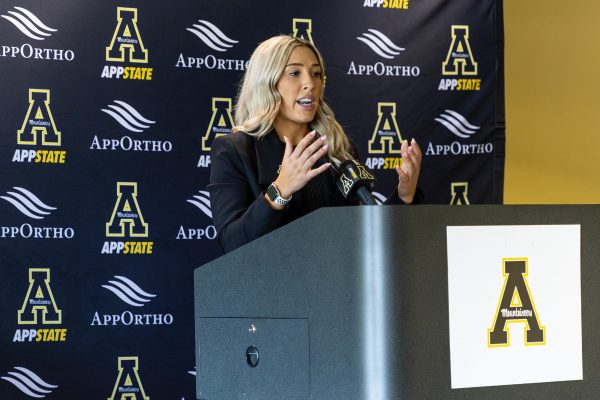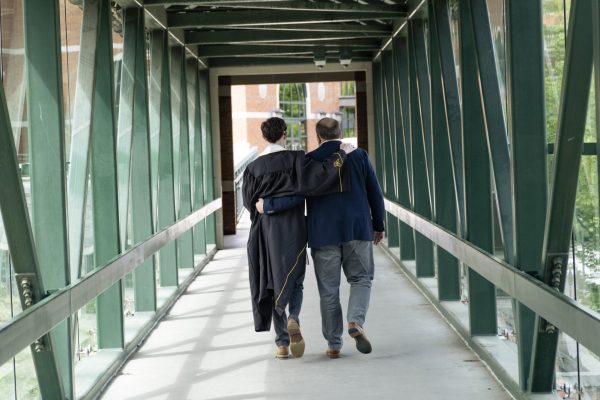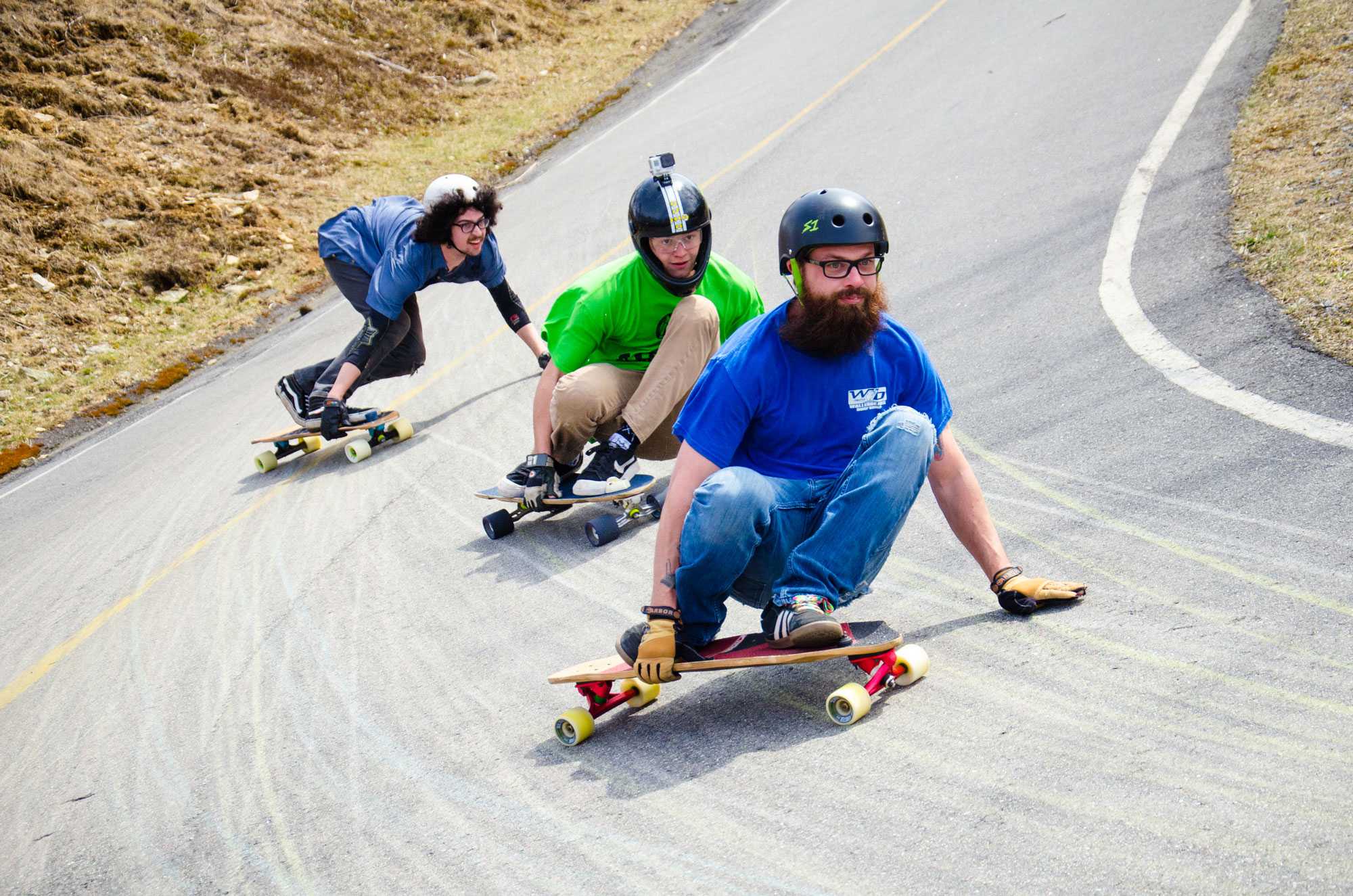Will Winstead, a sophomore graphic arts major, said transferring to Appalachian State was jarring because of its campus-wide skateboard ban.
Currently, under University Police Services, the skateboard policy states “The use of skateboards, skates, roller blades, or similar devices is prohibited on property owned or controlled by Appalachian State University.”
“In Wilmington, it seems like a half and half mix of bikers and skaters versus people walking, while here I hardly ever see anyone riding,” Winstead said. “While transportation is important, I find myself skating just for fun and to clear my head. They shouldn’t take away the right to skateboard on the streets and sidewalks if they don’t provide us with an alternative outlet.”
Captain Johnny Brown, patrol commander of university police, said skateboarding has been prohibited on campus since he came in 2001. Brown said he heard the policy came about after skaters caused damage around campus.
Appalachian is one of three schools within the UNC system to still ban skateboards, the others being UNC Asheville and Western Carolina University.
Brown said university police has been working with the Human Powered Transportation Committee and SGA to adjust university policy towards skateboarding.
Brown says that if skateboarding is to be allowed, he’s most concerned with regulating it so it doesn’t take sidewalk space from pedestrians.
Lee Franklin, a senator in SGA, is working with campus police on the issue.
“Multiple bills to legalize skateboarding on campus have been passed by the senate over the years,” Franklin said. “The problem is that skateboarding was made illegal by the town of Boone. Until skateboarding is legalized in the town, it won’t be allowed on campus. That being said, the purpose of the bill is basically to tell administration that if skateboarding is legalized in the town of Boone, then the university must allow skateboarding on campus.”
Being a skater himself, Franklin was inspired to work on legalization after attending a Boone Town Hall meeting and seeing Nathan Godwin from the Human Powered Transportation club give a presentation on allowing skateboarding in the area.
Franklin said town council was receptive to the idea and most people believe the ban should be overturned.
“Every senator I have talked to has believed that the ban is unfair,” Franklin said. “The Environmental Sustainability Committee is against the ban because skateboarding is a green form of transportation. The External Affairs Committee is against it because with recent cuts to the Appalcart budget, students will need to rely more on other forms of transportation.”
As for now, much of the input has come from members of HPT.
Nathan Godwin, president of HPT, said the club was started to promote sustainability and advocate for skaters on campus.
“We wanted there to be a school skateboarding club to advocate for students who like to get to class on their skateboard,” Godwin said. “We meet weekly, skateboard where it is legal weekly, organize campus trash-pickups and encourage members to positively influence our community. HPT exists to demonstrate through our club actions that skateboarders are beneficial members in a community.”
Godwin believes the ban still exists due there being a stigma against skateboarding, in contrast to biking.
Brown said that there are still safety concerns that have to be addressed for skateboarding to be a viable and safe form of transportation.
“Things that concern us about skateboarding in this area is the amount of hills that we have and people’s comfort level with skateboarding,” Brown said. “Somebody going down Howard Street or Locust Street or Hill Street scares me because that’s hard to stop. The one thing that has worried me is either the DOT lets them use the bike lane or else what if they get hit by a vehicle? Will that vehicle’s insurance say ‘that can’t be on the roadway so therefore we are not at fault’? I think those are things we need clear answers for before we can move forward.”
Brown said that while skateboarding is still prohibited on campus, university police are not attempting to pursue skateboarders. Brown does, however, recommend using a bike or other form of approved transportation until skateboards are officially allowed.
Brown also says bike riders can be just as inexperienced as skateboarders and many dangers still exist surrounding bike riding, yet it remains legal.
“If you’ve been around flat ground your entire life and you start going down Bodenheimer, that’s a big deal. You’ve got to make sure your brakes are pretty solid,” Brown said. “Bike riders should do a quick ABC check. They check they’re quick-connection for their rims, and then air, brakes and chain to make sure all that stuff is good before they ride.”
For those still opposed to skateboarding in town or on campus, Godwin recommends reaching out to those who do skate.
“For people who still don’t think skateboarding can be safe, I encourage you to talk with skateboarders. A lot of this misunderstanding comes from not having talked to people who skateboard safely every day,” Godwin said. “Lots of people skateboard as a way to commute to and from class, and have specific travel routes they take daily. Skateboarding can be safe with practice; it’s a lot like a car, it depends on the ability of the operator.”
Story by: Angela McLinton, News Reporter




